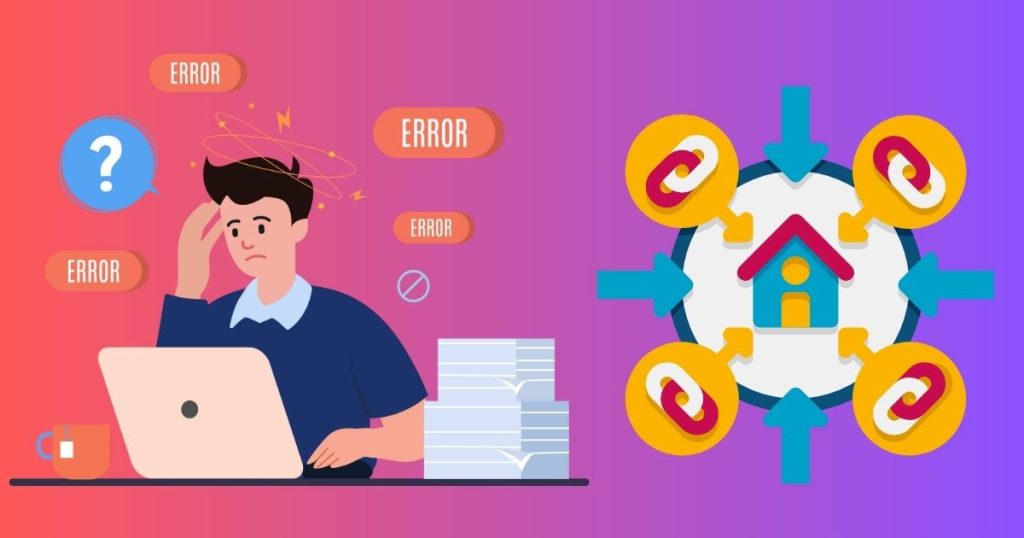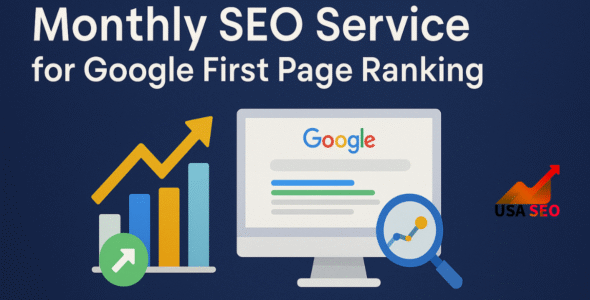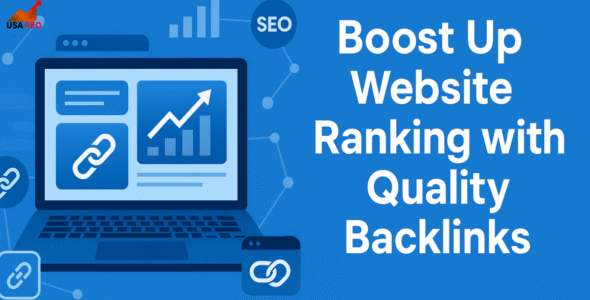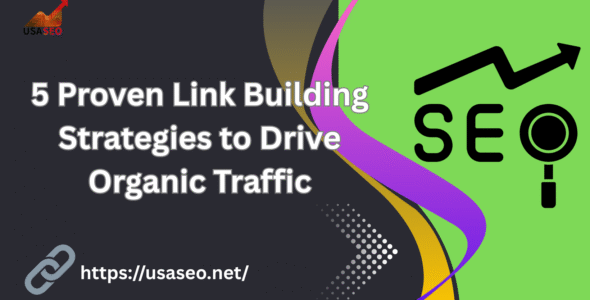Link building is one of the most significant and successful approaches for enhancing search engine optimization (SEO). But, it’s not always simple to comprehend what it is and how to execute it effectively. In this blog article, we’ll explore the role of link building in SEO, highlighting its benefits and best practices. We’ll also explore how to guarantee your link-building activities are operating successfully and how to monitor progress. In conclusion, link building can enhance your SEO performance and help you achieve your goals.
What is link building?
Link building refers to the practice of gaining hyperlinks from other websites to your own website. It is a vital part of search engine optimization (SEO) and plays a major role in boosting a website’s exposure and authority. The premise behind link building is that search engines evaluate backlinks (links from other sites to yours) as evidence of the quality and relevancy of your website’s content. By gaining high-quality backlinks, you may increase your website’s search engine ranks and attract organic visitors. Link building encompasses numerous tactics and approaches targeted at gaining backlinks. These may involve outreach to other website owners, generating quality and shareable material, guest posting, engaging in online communities, and using social media platforms.
The quality and relevancy of the gained backlinks are vital since search engines value connections from authoritative and trustworthy websites. Effective link-building demands a balance between number and quality. While collecting a high number of backlinks may first appear useful, the emphasis should be on obtaining connections from credible sites that are related to your website’s content. Quality backlinks from authoritative websites have greater weight in search engine algorithms and may have a bigger influence on enhancing your website’s visibility and organic ranks.
Why is link-building vital for SEO?
Link-building is a vital component of SEO because it directly impacts a website’s authority, visibility, and rankings in search engine results. Search engines, particularly Google, view backlinks as endorsements or votes of confidence from other reputable websites. The more high-quality backlinks a website has, the more likely it is to be seen as trustworthy and authoritative in its field. This is because backlinks signal to search engines that other sites recognize the value of the content being linked to, which enhances the site’s credibility.
Link-building also helps search engines discover and index your pages. When a website links to your content, search engine bots follow those links to crawl and index your pages. Without sufficient backlinks, your content may not be discovered or ranked properly in search engine results.
Another reason link-building is crucial is that it drives organic traffic. Backlinks not only improve search engine rankings but also lead directly to referral traffic. Users who click on links from other websites may land on your site, increasing your audience and potential customers. Moreover, backlinks from high-authority sites in your industry can position your brand as an industry leader, further enhancing your reputation.
Additionally, link-building helps you stay competitive in your industry. Websites with a strong backlink profile are more likely to rank higher, outpace competitors, and secure top positions in search results. Therefore, an effective link-building strategy is essential for improving SEO performance, gaining visibility, and driving long-term traffic.

Different sorts of linkages
There are several sorts of links used in different situations on the web. Here are some popular sorts of links:
- Hyperlinks: These are the fundamental links used on online sites. They link one webpage to another, letting visitors travel between various pages on the same website or to other websites.
- Internal Links: Internal links are hyperlinks that connect different pages within the same website. They enhance user navigation and help search engines understand the site’s structure and hierarchy.
- External Links: External links are hyperlinks that direct users from your website to another site. They provide additional information, resources, or credit sources and references.
- Backlinks: Backlinks, or inbound links, are hyperlinks from other websites that direct users to your site. They are crucial for SEO, helping to establish your website’s authority and improve its visibility in search engine results.
- Nofollow Links: Nofollow links contain a rel=”nofollow” attribute, telling search engines not to pass authority or “link juice” to the linked page.
- Dofollow Links: Dofollow links are regular hyperlinks that allow search engines to follow them and pass authority from the linking page.
- Anchor Text Links: Anchor text links are hyperlinks using specific keywords or phrases as clickable text, providing context and relevance for SEO.
- Picture Links: Image links are hyperlinks embedded in images, directing users to a connected website. They’re commonly used for banners or ads.
- Social Media Links: Social media links connect users to profiles or content on social media platforms, increasing reach and visibility through sharing.
- Redirect Links: Redirect links automatically send visitors from one URL to another, ensuring users reach the correct page after a relocation.
These are just a few examples of various link types, each playing a unique role in SEO and user experience.
How to obtain high-quality backlinks
Obtaining high-quality backlinks is essential for improving SEO and boosting search engine rankings. Here are effective strategies:
1. Create Outstanding Content
Develop valuable, comprehensive content like guides and infographics to naturally attract backlinks.
2. Guest Blogging
Contribute unique, insightful content to reputable blogs in your niche, linking back to your site.
3. Broken Link Building
Find broken links on authoritative sites and suggest replacing them with links to your content.
4. Influencer Outreach
Build relationships with industry influencers to have your content shared or linked by them.
5. Build Relationships with Journalists
Offer expert insights to journalists, getting quoted and gaining backlinks from news sites.
6. Social Media Promotion
Share content on social media to increase engagement and encourage backlinks.
7. Collaborate with Industry Experts
Create collaborative content with experts to earn backlinks from their sites.
8. Directory Submissions
Submit your reputable industry directories to gain quality backlinks.
By implementing these strategies, you can attract high-quality backlinks and improve your website’s SEO.

Common link-building errors to avoid
When participating in link-building activities, it’s vital to be aware of frequent blunders that might delay your efforts and even impair your website’s SEO. Here are some typical link-building blunders to avoid:
- Irrelevant and Low-Quality Links: One of the greatest blunders is acquiring links from irrelevant or low-quality websites. Focus on collecting links from authoritative and reliable sites within your business or specialty. Irrelevant or low-quality links may significantly damage your website’s trustworthiness and search engine results.
- Over-Optimization of Anchor Text: Using exact-match anchor text excessively might seem odd and raise red flags for search engines. Aim for a genuine and diversified anchor text profile, including variants, branding words, and generic phrases. This produces a more organic link profile and enhances the overall user experience.
- Neglecting Link Relevance and Context: Obtaining connections from websites or material that are unrelated to your own might dilute the quality and relevance of your backlink profile. Focus on getting links from sites that fit with your sector, issue, or content, since they give better value to both users and search engines.
- Ignoring Link Removal: Occasionally, it’s vital to discover and delete poisonous or spammy backlinks referring to your site. Regularly review your backlink profile and disavow any damaging links that may have been earned accidentally or as a consequence of poor SEO methods.
By avoiding these typical link-building blunders, you may boost the efficacy of your link-building efforts and maintain a healthy and authoritative backlink profile.
The future of link building in SEO
As search engines, especially Google, continue to improve their algorithms to give priority to quality over number, the future of link building in SEO is changing. Link building will continue to be a crucial part of SEO tactics as websites work to increase their search engine exposure, but there will be a stronger emphasis on obtaining relevant, high-quality backlinks. Link building used to often rely on strategies like sponsored backlinks and link exchanges, which Google has been penalizing more and more. Building natural, authoritative connections from reliable websites that complement a website’s business or expertise will be the main focus going ahead.
The foundation of every effective link-building strategy will remain content. Websites that regularly provide interesting, educational, and high-quality material will get backlinks from reliable sources on their own. Reaching out to industry-specific websites, guest blogging, and collaborating with influencers will remain effective strategies for gaining high-quality backlinks. Future link development requires a more sustainable, ethical method that emphasizes collecting links organically instead of via trickery.
Additionally, when evaluating the worth of backlinks, search engines will place greater emphasis on user experience and content relevancy. While spamming approaches may result in penalties, websites that use transparent, high-quality procedures will be rewarded. Businesses must focus on authenticity, relevance, and long-term strategies in SEO as link building evolves with the digital landscape.
 My Account
My Account 


